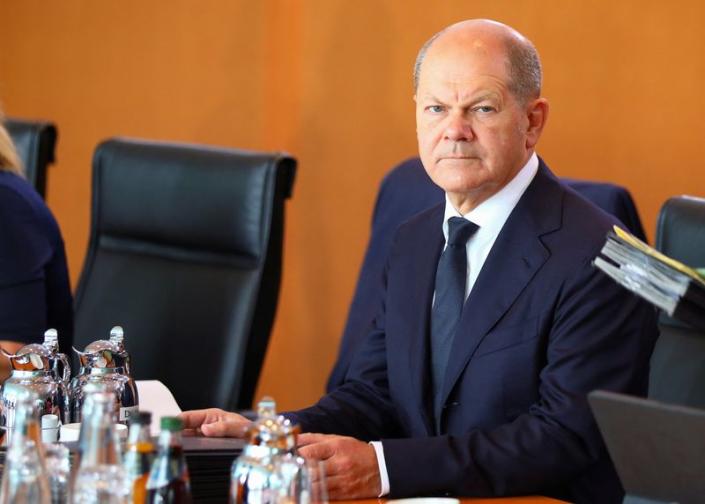German Chancellor Olaf Scholz has issued a warning to China against using force to achieve territorial changes, particularly in relation to Taiwan. Speaking to the German parliament, Scholz stated that Germany firmly rejects any unilateral attempts to change the status quo in the East and South China Seas through force or coercion. He specifically highlighted Taiwan as a concern, as China has been increasing its military activities near the island in an attempt to assert its sovereignty.
Scholz’s warning came during talks with a large Chinese delegation led by Premier Li Qiang. This face-to-face summit marked the first meeting between Germany and China since the start of the pandemic. The timing of the summit is significant, as geopolitical tensions between the West and China continue to rise.
In addition to addressing territorial concerns, Scholz also expressed Germany’s concerns about the human rights situation and the state of the rule of law in China. These issues have been a point of contention between China and the international community, with many countries raising concerns about China’s treatment of its citizens and its actions in Hong Kong.
Scholz’s warning to China comes as Taiwan strongly disputes Beijing’s sovereignty claims and vows to defend itself if attacked. China has never renounced the use of force to bring Taiwan under its control, and its increased military activities near the island have raised alarm bells in the international community.
In his address to lawmakers, Scholz also touched on NATO membership, urging Turkey to pave the way for Sweden to become a member of the alliance. He emphasized that Sweden should have a seat at the table of the next NATO summit, highlighting the importance of including all relevant countries in discussions and decision-making processes.
The outcome of the summit and Scholz’s warning to China will likely have significant implications for the ongoing tensions between the West and China. As the international community continues to navigate these complex geopolitical dynamics, it remains to be seen how China will respond to Germany’s stance on territorial changes and human rights concerns.

What potential implications do Scholz’s warning and the outcome of the talks between Germany and China have for the ongoing tensions between the West and China, particularly in terms of territorial changes and human rights concerns
German Chancellor Olaf Scholz has issued a warning to China against using force to achieve territorial changes, particularly in relation to Taiwan. Speaking to the German parliament, Scholz stated that Germany firmly rejects any unilateral attempts to change the status quo in the East and South China Seas through force or coercion. He specifically highlighted Taiwan as a concern due to China’s increasing military activities near the island in an attempt to assert its sovereignty.
Scholz’s warning came during talks with a large Chinese delegation led by Premier Li Qiang. This face-to-face summit marked the first meeting between Germany and China since the start of the pandemic, and its timing is significant as geopolitical tensions between the West and China continue to rise.
In addition to addressing territorial concerns, Scholz also expressed Germany’s concerns about the human rights situation and the state of the rule of law in China. These issues have been points of contention between China and the international community, with many countries raising concerns about China’s treatment of its citizens and actions in Hong Kong.
Scholz’s warning to China comes as Taiwan strongly disputes Beijing’s sovereignty claims and vows to defend itself if attacked. China has not renounced the use of force to bring Taiwan under its control, and its increased military activities near the island have raised alarm bells in the international community.
During his address to lawmakers, Scholz also touched on NATO membership, urging Turkey to pave the way for Sweden to become a member of the alliance. He emphasized the importance of including all relevant countries in discussions and decision-making processes, and highlighted that Sweden should have a seat at the table of the next NATO summit.
The outcome of the summit and Scholz’s warning to China are likely to have significant implications for the ongoing tensions between the West and China. As the international community navigates these complex geopolitical dynamics, it remains to be seen how China will respond to Germany’s stance on territorial changes and human rights concerns.

It’s quite concerning to see China’s increasing use of force, and it’s commendable to see the German Chancellor raising these concerns. The call for NATO inclusion for Sweden emphasizes the need for stronger alliances to counter such actions and preserve global stability.